
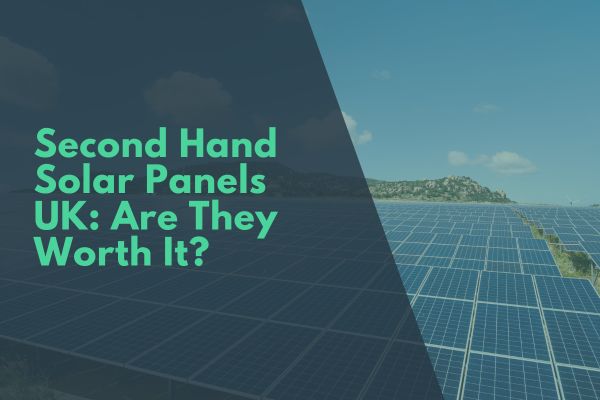
As the cost of living in the UK continues to be a hot topic, you might be considering more sustainable and cost-effective ways to power your home. Solar energy is an increasingly popular choice. It's no wonder that many are turning to second-hand solar panels as a way to save on installation costs.
Grabbing a bargain and giving a pre-loved panel a new lease of life could be a win-win—benefiting both your wallet and the planet.
However, you'll need to find panels that are both reliable and have a decent amount of their lifespan left.
You might also be keen to understand the financial nuances such as incentives available for solar installations, and the legal aspects to ensure your setup is compliant and safe. Don't worry, we'll dive into them as you read on!
DISCLAIMER: Glow Green do not offer second hand solar panels. This content is for educational purposes only and is correct as of time of writing 08/03/24.
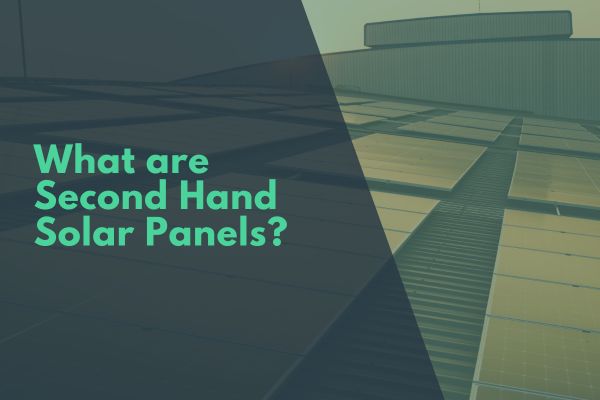
A used solar panel refers to a photovoltaic (PV) module that was part of a solar power system and has been removed for the purpose of resale or repurposing. These panels often originate from disassembled solar installations, which may be due to upgrades, damage repair, or the dismantling of a solar project.
Any solar panel that has changed hands from its original owner, be it an individual, a corporation, or any entity, qualifies as used. This classification applies even if the panel was merely removed from its packaging without being deployed. Considering the average lifespan of a solar panel is about 30 years, a panel with around 15 years of service is categorized as 'used'.
Used solar panels are characterized by having been previously installed and utilized, potentially for an extended period. Refurbished solar panels, on the other hand, are panels that have seen prior use but have been professionally restored to a condition deemed suitable for further use. This restoration process might involve the replacement or repair of certain components.
It's anticipated that used solar panels will exhibit some degree of performance degradation. Conversely, refurbished panels, while possibly not achieving the longevity of brand-new panels, are expected to operate similarly to new ones due to professional refurbishment, including part replacements or repairs.
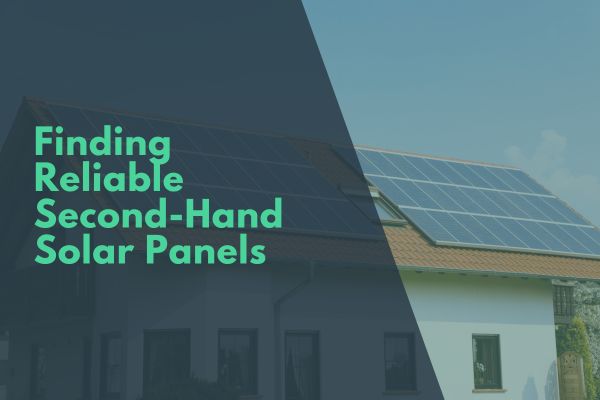
When you’re in the market for second-hand solar panels in the UK, it's crucial to suss out the best bargains without compromising on quality. Understanding the durability and reliability of used solar panels is key, as is knowing where to shop for them.
Before you part with your quid, it's wise to:
| Aspect to Evaluate | Why It Matters | What You're Looking For |
|---|---|---|
| Age | Solar panels degrade over time | Less than 25 years old |
| Efficiency | Determines output | Remaining efficiency rating |
| History | Past conditions affect lifespan | Minimal exposure to extreme weather |
| Maintenance | Signals good care over time | Records of repairs and upkeep |
Where to find your shiny (well, slightly less shiny) second-hand bargains:
| Source | Tips for Scouring | Why It's Reliable |
|---|---|---|
| Gumtree | Look for local sellers; easier to view items | Local deals can be verified with a visit |
| eBay | Check the seller's history and feedback | Provides seller transparency and buyer protection |
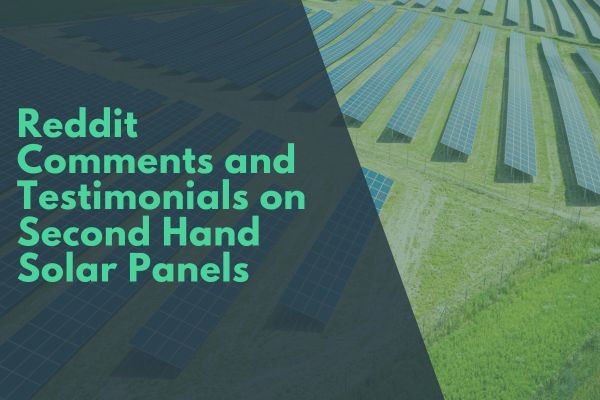
Considering the option of purchasing gently used solar panels? The Reddit solar community offers valuable insights that could guide your decision.
| Topic | Reddit Wisdom |
|---|---|
| Quality | UL listed, performance may decline. |
| Cost | More wallet-friendly, but the tax credit's a no-go. |
| Lifespan and Reliability | Voltage test in sunlight helps identify potential issues. |
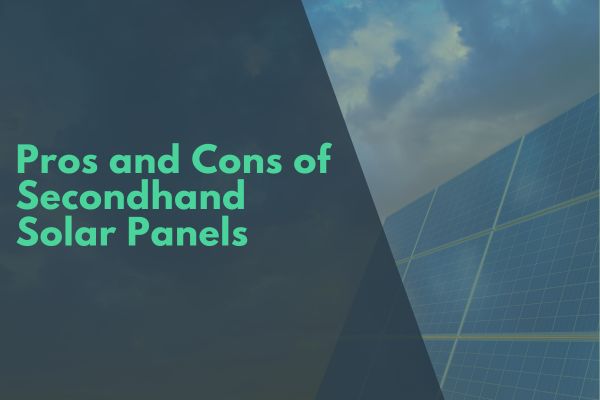
The primary benefit of purchasing second-hand solar panels is their affordability. However, it's crucial to acknowledge the potential negatives as well. Making a decision on whether solar panels suit your needs involves thorough contemplation and an in-depth examination of the panels' condition before committing. Remember, buying used solar panels comes with a strict no-return policy!
| Benefit | Description |
|---|---|
| Cost Effectiveness | Used solar panels are usually 2.5x to 10x cheaper than new ones, offering better value for money. This price advantage is significant for buyers looking to save on costs. |
| Faster ROI | With a reduced upfront cost, used solar panels can offer a quicker return on investment (ROI), making them a financially attractive option for those looking to save. |
| Downside | Description |
|---|---|
| Installation Costs | While second-hand panels are cheaper, labor costs for installation remain high, potentially ranging from $2,700 to $4,050 (converted from £2,000 to £3,000) including scaffolding. |
| Compatibility Issues | Mixing and matching different models or types of panels is not feasible with a standard string inverter, limiting flexibility in system design. |
| Increased Maintenance | Used solar panels may require more maintenance due to wear and potential faults, similar to buying a used car that may have hidden issues. |
| Less Efficiency | Second-hand solar panels may be less efficient and have a lower power output than new ones, although this varies based on the age and condition of the panels. |
Simply put, second-hand solar panels offer financial benefits such as lower initial costs and faster ROI. However, potential buyers should consider the high installation costs, compatibility issues, likely increased maintenance, and possibly reduced efficiency and output. Careful consideration and research are crucial before making a purchase to ensure that the benefits outweigh the cons.
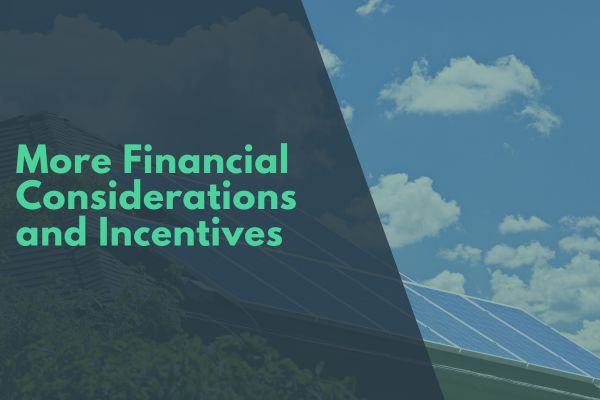
Purchasing second-hand solar panels in the UK can be easier on your wallet, but it’s not just the price tag of the panels that you ought to consider. From the maze of VAT implications to the various financial scoops on offer, let’s ensure you're not left in the dark financially.
When you're snagging a deal on used solar panels, VAT can't be an afterthought. Here's the deal:
| VAT Rate | % |
|---|---|
| Newer panels | 20% |
| Older panels | 5% |
Now, onto the bit that brightens your day – financial incentives. Keep your eyes peeled for schemes like these:
Let's break down some of the financial terms you might come across:
| Term | Role | Importance |
|---|---|---|
| FCA | Regulatory body for fairness in finance | Ensures you’re not getting a dodgy deal |
| Credit Broker | Arranges loans | Must be FCA-regulated for peace of mind |
| Lender | Provides the loan | Where the financial magic happens |
| Commission | Broker's fee | Transparency is key – know what you're paying for |
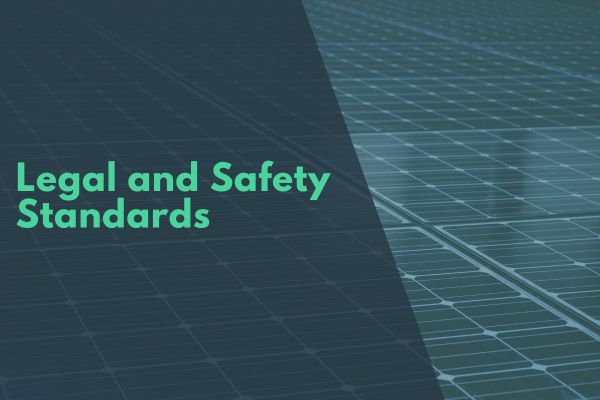
When considering second-hand solar panels in the UK, your top priorities should be compliance with legal regulations and ensuring the panels are safe to use and properly installed.
In the UK, including both England and Wales, you must ensure that any second-hand solar panels comply with the country's strict regulations.
| Regulation | Description | Importance |
|---|---|---|
| MCS Certification | Indicates approved quality and installation standards. | Essential for incentives |
| ESQCR 2002 | Governs electrical safety and supply standards. | Legal requirement |
| Modern Slavery Statement | Asserts ethical practices in the supply chain. | Ethical consideration |
Proper installation and usage are crucial for the safety and efficiency of your solar panels.
| Action | Why It's Needed | Result |
|---|---|---|
| Professional Inspection | Confirms the system's condition and safety. | Peace of mind |
| Adherence to Standards | Ensures correct and safe installation. | Maintains insurance validity |
| Terms of Use Compliance | Protects warranties and upholds the law. | Avoids future disputes |
Remember, you're not only saving a few quid, but you're also doing a bit for the planet. Just make sure you're not skimping on the important bits – safety and legality!
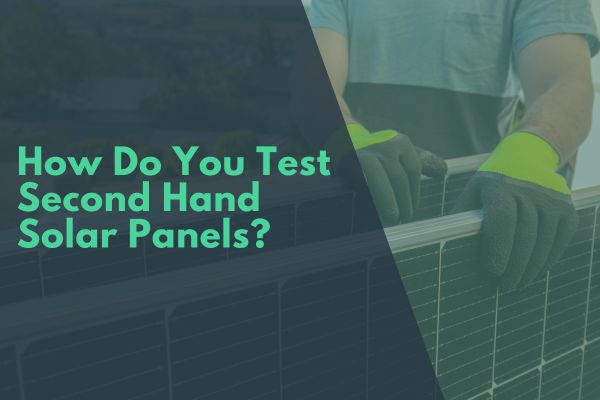
Before purchasing a second-hand solar panel, conducting a few tests is essential to assess its actual performance and condition. You will need a multimeter and a little bit of time to evaluate its efficiency. Pay attention to the following aspects:
| Test Category | Description |
|---|---|
| Visual Examination | Inspect the panel for any signs of cracks, corrosion, or moisture damage. |
| Open Circuit Voltage Test | On a sunny day, use a multimeter to measure the panel's voltage output and compare this to the manufacturer's expected Voc. |
| Short Circuit Current Test | Similarly, measure the current output using a multimeter under sunlight, and compare it with the expected Isc. |
| Efficiency Calculation | Gauge the panel's actual efficiency in real-life conditions by dividing the measured power output by the panel's wattage. |
| Voltage Measurement | In direct sunlight, adjust your multimeter to measure voltage and check the panel's wattage. Connect the multimeter's positive lead to the panel's positive terminal and the negative lead to the negative terminal. A typical reading should be around 60 volts. If the measurement significantly deviates from this, it might be wise to either pass on the panel or seek a professional's opinion for a more detailed assessment. |
| Current Measurement | Follow the same steps as for voltage testing but switch your multimeter to the current (amps) setting. After connecting the leads accordingly, observe the reading.A healthy panel should display a reading between 3 amps and 3.5 amps. Readings below 3 amps suggest a potential issue with the panel. In such instances, it's advisable to either forego the purchase or consult with a professional for additional insights. |
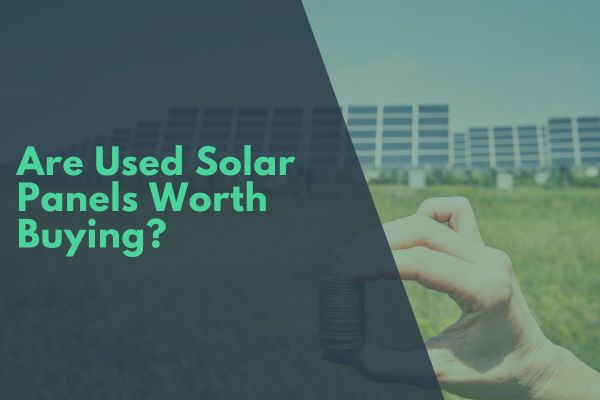
Purchasing a brand-new solar energy system can significantly strain your finances, especially given that the most recent photovoltaic technologies offer double the power output of older models.
However, for home solar installations or expanding existing setups, opting for used solar panels could be a financially savvy decision. The primary allure of second-hand panels lies in their affordability—they can be as much as 50% cheaper than their brand-new counterparts.
While it's true that the price of new solar panels is gradually decreasing each year, the cost efficiency of used panels remains unbeatable, offering substantial savings without necessarily sacrificing much in terms of energy production.

Manufacturers craft solar panels to endure for many decades, typically offering warranties that span 20 to 25 years. This means when you opt for a second-hand solar panel, you're acquiring a product that has already demonstrated its durability over time. Hence, a used solar panel shouldn't be dismissed as inferior or inadequate.
While certain solar panels may suffer irreparable damage and necessitate recycling through methods like those of FabTech, nearly all kinds of impairment or deterioration are fixable. The primary consideration hinges on the condition of the glass; if the glass remains unbroken, the panel can likely be refurbished.
Solar panels are not invariably destined for replacement after the 25-year mark, but their efficiency in harnessing solar energy will decrease. Despite this decline, solar panels are capable of continuing electricity production for an additional 10 to 15 years beyond their warranty period.
The most advanced solar panels available today boast an anticipated lifespan of 40 to 50 years, with warranties designed to cover at least half of that duration. This extended lifespan and warranty coverage ensure prolonged protection and value.
Integrating various types of solar panels isn't ideally advised, yet it's not strictly prohibited, provided that the electrical specifications of each panel, such as voltage, wattage, and amps, are meticulously matched. The challenge isn't the brand diversity but ensuring the compatibility of electrical characteristics when connecting panels from different manufacturers.
The price for a used solar panel is influenced by several factors including its age, model, overall condition, and performance as determined through testing.